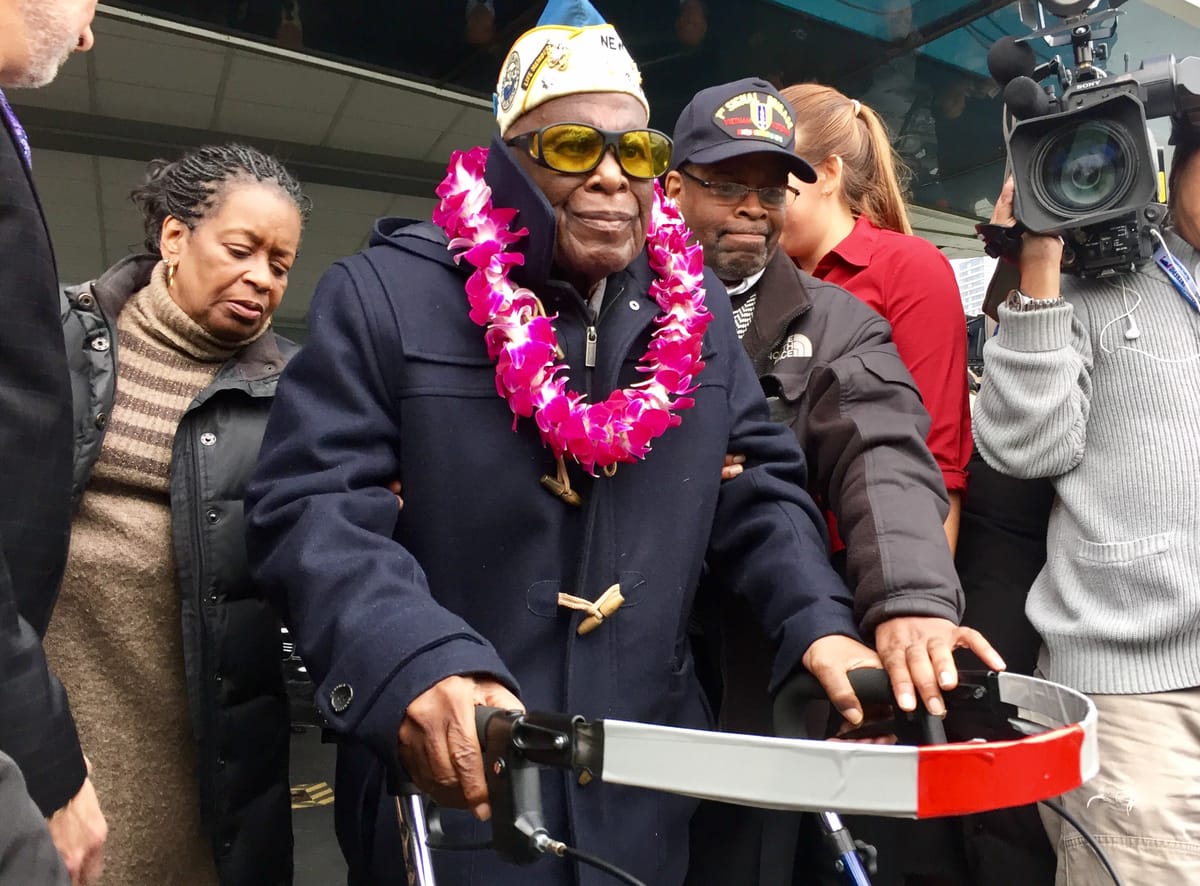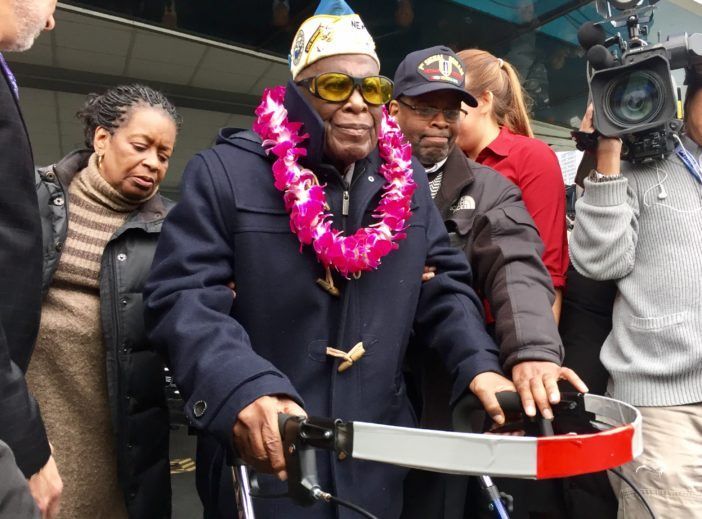Sheepshead Bay Veteran share His Pearl Harbor Story on 75th Anniversary


“Abandon ship and god bless you.” These were the last words Clark J. Simmons heard from the Naval chaplain aboard the USS Utah on the morning Pearl Harbor was attacked. The naval veteran, born in 1921 in Sheepshead Bay, Brooklyn, was stationed in Hawaii on December 7th, 1941, the day Japan attacked the United States and killed 2,400 servicemen.
Simmons, a mess attendant, who served naval officers on the USS Utah for about two years before the attack, recalled the tragic event aboard the Intrepid Sea, Air & Space Museum in New York City on Wednesday, December 7th. The occasion was a ceremony commemorating the 75th anniversary of the event with veterans, survivors, and the family members of fallen servicemen lost at Pearl Harbor.
“You saw the most beautiful sight you ever wanna see, twin rainbows,” and then, “all hell broke loose,” Simmons said remembering that Sunday morning “We could hear the bullets hitting the side of the ship and the ship was going fast”.
Simmons jumped overboard and swam to Ford Island, the site that now is home the USS Arizona memorial in O’ahu, Hawaii. It took only 8 minutes for his naval ship to sink and become an instant memorial to America’s entry into the second world war.
This follows President Obama’s visit to Hiroshima in May, which marked a first by a US leader. President Obama apologized for the bombing and offered a plea to promote peace worldwide and consider the gravity of technology and power in today’s world.
“On a bright, cloudless morning, death fell from the sky and the world was changed,” Obama reflected in his speech at Hiroshima on May 27th of this year about the dropping of the first atomic bombs in 1945, a description that echoes Simmon’s memory of the morning two rainbows were refracted in the sky and America went to war.
Later this month Japanese Prime Minister Shinzo Abe will visit Pearl Harbor, he will also be the first Japanese leader to do so. Simmons was accompanied at the ceremony by army veteran and fellow survivor Aaron Chabin, 92 of Bayside, New York. About Prime Minister Abe’s planned visit to the Pearl Harbor memorial, Clark said “it means a hell of a lot to me”.
As a bugle sounded on Wednesday morning on the USS Intrepid, the survivors tossed a wreath off the stern of the ship and into the gray haze of the Hudson River, echoing the wreath laying by the two world leaders in Japan seven months ago.
When asked about the bombing of Hiroshima and Nagasaki, an event that had a crippling death toll and but also ended the war, which took cumulatively took 60 million lives, Chabin remarked somberly, “if they hadn’t [dropped the bomb] a lot of us wouldn’t be here.”
Obama added in his Hiroshima speech “nations arise telling a story that binds people together in sacrifice and cooperation, allowing for remarkable feats. But those same stories have so often been used to oppress and dehumanize those who are different.” A remark that is both historically reflective but is also a timely sentiment.
The ceremony took place at the same site that held the Commander-in- Chief Forum, where presidential candidates President-Elect Donald Trump and Senator Hillary Clinton made remarks in front of veterans in September.
When asked what we’ve learned- as a country and society- from the chapter of history we know as World War II and since, Chabin reflected, “from what the world looks like right now, not very much.”



